We would like to thank Andrew Houwen for editing and commissioning the work that has been featured in this issue.
*****
THE POETS
Suzuno Umine • Noguchi Ayako • Ibaragi Noriko • Yoshioka Minoru • Mizuta Noriko • Tanaka Yosuke • Torii Shōzō
The Translators
Nihei Chikako • Andrew Houwen • Peter Robinson • Eric Selland • Jordan A. Y. Smith • Kubo Mitsuhiko • Taylor Mignon
*****
Previous Translations
THW6: June 3, 2017 THW5: March 7, 2017
THW4: December 6, 2016 THW3: September 1, 2016
THW2: June 1, 2016 THW1: March 1, 2016
*****
Suzuno Umine: Four Haiku translated by Nihei Chikako & Andrew Houwen
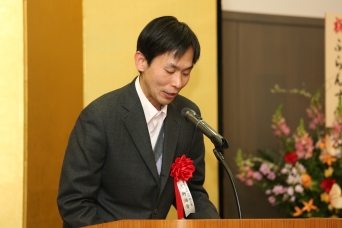
(Photograph by courtesy of the Uehiro Foundation on Ethics and Education)
倉庫から転がるボール蝶の昼
ball rolling
out of the shed –
midday butterfly
草矢打つ明石の海のまぶしさに
the Akashi sea –
shooting grass arrows
in its dazzling light
短夜やロシア映画に大き森
summer night –
in a Russian film
a vast forest
機関庫の奥に日の差す十二月
reaching to the back
of the locomotive shed –
December sunlight
Suzuno Umine (1981-) was born and raised in Kagawa Prefecture. He is a member of the Kasei and Shin literary associations. In 2014, his first haiku collection, Ichiban sen (‘Number One Line’), was published by Bungaku no Mori, for which he received the fourth Hoshino Tatsuko Début Prize. The haiku selected here are from this collection and from more recent ones published in Kadokawa haiku in September 2016.
*****
Noguchi Ayako: Four Tanka translated by Nihei Chikako & Andrew Houwen
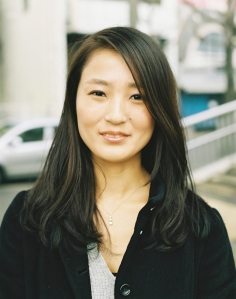
Photograph by courtesy of Hayamizu Tokifumi
「休憩中」に似合う絵文字を考えて考えていて休憩おわる
thinking
and thinking about
the right emoji
for ‘on my break’ –
break time’s over
苺ジャム、こんなにおいしいものはない あなたの髪に塗ってあげたい
there’s nothing
more delicious than
strawberry jam –
I want to run it
through your hair
撫でられて咲く耳だからそよ風のままのピアノがいちばん好きよ
soothing
my ears, making
them bloom –
piano music in the breeze
is what they like most of all
終電を知らせてあげる羊、羊、ひつじたち数えあっておやすみ
announcing
the last train –
sheep
sheep sheep
good night
Noguchi Ayako (1987-) was born in Gifu and lives in Nagoya. While still a high-school student, she was awarded the Tanka Studies Début Prize and was the youngest recipient of the Modern Tanka Association Prize for her first collection, Kubisuji no kakera (2009). The novelist Suwa Tetsushi’s influence is evident in her second collection, Natsu ni fureru (2012), and she collaborated with Misumi Mizuki on a tanka and poetry book, Kikanshi to hajimete no tegami (2014). The translations here are from her third tanka collection, Kanashiki gangutan (2015). Her fourth tanka collection is due to appear in autumn 2017.
*****
Ibaragi Noriko: Three Poems translated by Peter Robinson
WHEN I WAS AT MY MOST BEAUTIFUL
When I was at my most beautiful
towns came clattering down.
From most unexpected spots
the blue sky or suchlike I noticed.
When I was at my most beautiful
lots of people around me died
in factories, the sea, on nameless islands.
I did miss my chance to be well dressed.
When I was at my most beautiful
no one came with tender gifts.
Men only knew how to give a salute.
Merely pretty gazes they left as they set out.
When I was at my most beautiful
my head had nothing in it,
my heart had been hardened.
Only my arms and legs, chestnut-hued, shone.
When I was at my most beautiful
my homeland was overwhelmed by war.
Was there ever so stupid a thing?
Blouse sleeves rolled, I strode the humiliated town.
When I was at my most beautiful
jazz poured from the radio.
Dizzy, like smoking once more when you’ve stopped,
I devoured the exotic, sweet music.
When I was at my most beautiful
I was entirely unhappy,
I was entirely incoherent,
I was absurdly lonely.
So I decided, if possible, I’d live a long life
like that French artist grandpa Rouault
who painted in old age outrageously fine pictures,
xxxxxxxxxxxxxxxxxxxxxxxxxxxxxxxxxxxxxxwouldn’t I?
YOUR OWN SENSITIVITY AT LEAST
My little parching heart,
don’t blame it on the others.
Myself, I failed to water it.
Growing more difficult,
don’t blame it on your friends.
Who was it lost the pliancy?
My own irritation,
don’t blame it on the family.
I myself was bad at most things.
Early ardour nearly gone,
don’t blame it on the daily round.
My spirit was enfeebled from the outset.
Each and every evil thing,
don’t blame it on the times,
abandoned barely glinting self-esteem.
Your own sensitivity at least,
protect it by yourself,
oh you great idiot.
GARDEN AT NIGHT
How the scent flows!
Sensing for the first time
flowers in the garden,
sweet olive, start to blossom…
Their grainy flowers
change colour of a sudden
to turmeric from cream
and, generous, spread odd fragrance.
Since you were someone,
absent-minded, who would
confuse shaving lotion
with hair tonic, use one for the other,
led to that flower-scent in the night air
and pushing clear autumn’s revolving door
on this world’s border with the next,
from nowhere, I couldn’t be sure
you weren’t there wearing a serge kimono,
as if to say,
you what?
With combed-up hair,
although you’d noticed me
your face showed no expression,
casual, as if not surprised.
Let’s talk again, like it was yesterday.
Well, it’s been a while, no?
How large the trees are, and how many flowers!
When we planted, there were just five or six.
Oh how many now, scattered all around!
If we had a moment,
I’d slowly, gently clasp your sash.
Together, we’d turn somersaults,
this time, go away together
from here, to there.
Somewhere in this minute garden,
it’s like that revolving door’s hidden
once more, but not gone, garden at night.
Ibaragi Noriko (1926-2006) was a leading member of the poets associated with the magazine Kai (‘Oar’), who came to prominence with her strongly individual, politically and culturally forthright poems during the 1950s. In a long career she published nine volumes of poetry, the last one, Saigetsu (‘The Years’), posthumously issued in 2007 on the subject of her husband’s death (from which ‘The Garden at Night’ is taken), various collections of essays, and an anthology of Korean poetry in her own translations. Her most famous poem, ‘When I was at My Most Beautiful’, was found, translated in a magazine, by Pete Seeger, who set it to music and included it on one of his albums.
*****
Yoshioka Minoru: Three Poems translated by Eric Selland
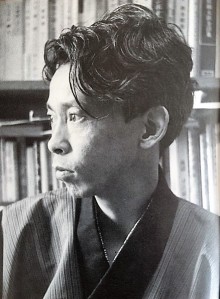
(From Yoshioka Minoru Zenshu, [Collected Poems], published by Chikuma Shobō).
A PASTORAL SONG
Arriving at the village
We remove our clothes so as to be ready for love
Next to a river which has come to a stop
They bring out the horses that never sleep
And transport breakable objects
The same weight as a voluminous woman’s torso
To the corner of the trough of water and the frozen star
The dancing of slugs and centipedes
Takes up the entire bottom of the barrel
Quickly we set out on the hunt
For featherless birds and rubber fish
In a little hut we shut away
The pitiable catch which cries in the morning and keeps silent at night
Those which bite, unable to endure frequent movement
Between the dried straw and the reddening clouds
We push the moon out through the window
And start a fire
Then grill up four inedible thighs
And squeeze lemons not fit to drink
The owner of the little hut is missing
And the madam of the house has attempted love suicide
While the children are in town at school
Where they meet their merry fate in the bathroom
We are those who come to a stop here
Naked we disappear with the flames
Outnumbered by the townspeople who come to watch
As the smoke dissipates
MONKS
1
Four monks
Strolling through the garden
Occasionally roll up their black robes
And with things shaped like sticks
Give a young woman a good thrashing
Then until the cries of the bats begin
One monk prepares a meal
While one goes in search of sinners
One monk masturbates
And one is killed by the woman
2
Four monks
Devoted to their duties
Pull down the holy effigy
And crucify a cow in its stead
One monk shaves another’s head
One who is dead performs his devotions
While another makes a casket
When a flood of births rushes in from the midnight town
Then all four stand up at once
Four crippled umbrellas
The beautiful walls and ceiling covering
There a hole appears
And it begins to rain
3
Four monks
Sit down to the evening meal
The one with long arms passes out forks
The one with warts on his hands pours saké
The other two do not show their hands
But stroke today’s cat
And tomorrow’s woman
While at the same time constructing hairy statues
Furnished by their bodies with their two hands
The meat holds fast to the bone
Meat is exposed to blood
Two of the monks grow fat from engorging themselves
While the other two grow thin from their own creativity
4
Four monks
Set out to perform the morning’s austerities
One goes to the forest to greet the hunters
In the form of a bird
One goes to the river and takes the shape of a fish
So he can peer up at the maid’s crotch
Another goes to town taking the shape of a horse
And comes back loaded with instruments of slaughter
One monk is dead, so he strikes the temple bell
The four monks never laugh out loud together
5
Four monks
Planting seeds in the field
The one in the middle mistakenly
Places an offering of a turnip in a child’s rear end
The earthenware face of the mother in shock
Her mouth could sink a sun of red clay
Now three of the monks climb up
Onto an extremely high swing set
And sing out in a chorus of voices
The dead one’s voice emerges
From the deep throat of a crow sitting in its nest
6
Four monks
Squatting around the well
The laundry is all goat’s scrotums
And too many menstruation bands to handle
The three wring out the wash together
Sheets the size of a hot-air balloon
The dead monk shoulders the burden
And takes it out to dry
From the top of a tower in the rain
7
Four monks
One of them writes up the history of the temple
As well as their own personal histories
Another writes of the lives of the world’s flower queens
And another writes the history of monkeys and axes and tanks
One of them is dead
So he hides behind the others
And sets fire to the their records as soon as they’re produced
8
Four monks
One gives birth to a thousand illegitimate children
In a land of dead trees
Another causes the deaths of a thousand illegitimate children
In an ocean with no salt or moon
Yet another, using a scale entangled in snakes and grape vines,
Is surprised to find that the feet of the one-thousand dead
And the eyes of the one-thousand living have an equivalent weight
The fourth monk is dead and yet still feels sick
Coughing behind the stone wall
9
Four monks
Leave the fortress of hard breastplates
Since their lifework has yielded no harvest
And at a place a level higher than the world
Hang themselves together in cynical laughter
When it’s all over
The bones of the four monks are as thick as a winter tree
And they remain dead there till an era comes when the rope snaps
SUMMER
(for Y.W.)
The hairy armpits of women walking
Looking at wax food displays
Brighten the sweet a priori summer
An obese family romps about
I am a man with a shamefully small watermelon
And I have come to this coast shaped like a tire in evening
In search of the entrance to a tent with red and grey stripes
I seek a woman with the same deformity as myself
I go around once, then twice
I wrap a towel around the frame of the spindle-form
And dig a hole in the sand of this miserable system
All I can do is stammer
Stroking the messy hair of seaweed to console the next to drown
The waves carry away my salty spirit
Summer which yearly violates me
Liaisons on the beach at night
The fruit’s form seen up close
The abundant nude bodies of underage fish
And on top of that the ice which appears to be shrinking
Through my eyes, my instinct to insult and disgrace
Infects all living organisms
Losing sight of the practical use of dry land
I try out my sense of touch on a woman
Gradually I fit my neck into a child’s life preserver
Even now I laugh
Facing the mast that tilts the sail of my heart
I catch the wind smelling of fish
And leave on the hunt for my own blood
Toward the open sea like a staircase
The introspective sea
Sea of the sheet of dawn
That crushes my pride
That continually exposes my natural voice and cerebrum
Yoshioka Minoru (1919-1990) was one of the most important poets of Japan’s postwar period. With Modernist and Surrealist influence, he became the most influential practitioner of experimental poetry by the 1960s, carrying on a creative dialogue with Butoh dance and painting. Monks (1958) was Yoshioka’s official debut, and brought him recognition as a poet for the first time. His later work focused on the practice of appropriation and collage.
*****
Mizuta Noriko: Four Poems translated by Jordan A. Y. Smith
THE FORGETFUL ASTER
Forgotten
So completely
Did I feign longing, now
Forgotten
So very distantly
Did I gaze at an invisible sky, now
Forgotten
So very many
Songs of lament did I sing, now
Forgotten
So very rich
The pride of its lavender, now
Already completely
Completely forgotten:
This summer’s end
CONFESSING TO SHADOWS
To shadows
I confessed
That I’d been searching for you
How to describe the encounter
Certainly:
Amidst the blur of snowstorm
Obstructing visibility
I found you,
Or rather,
Under a tree somewhere
Certainly:
In the faint darkness
Under the sinking sun
I found you
You
Standing there
Shadows, I say,
In a veil of silence
Enveloping
the surroundings
and me
Shadows, I say,
Take me with you
To whence you came
For that is why our paths crossed,
Without warning
You
Arrived from distant lands,
Because you were standing
At that hour
Silence
Shadows
STAINED GLASS
Crafting stained glass,
I place myself inside
Become the glittering smooth of the surface
Intercepting the dark interior space and
Outside world flowing boundless light
So as to shine
Surface of a fixed single dimension
Inserted so both my hands dangle
The saints surround me
A Gothic window safeguards my position
My flesh
Honor of the wound
Multidimensional yearning of the one who atones
Four faces Eight hues
Comprised of fragments
Radiant woman of beatitudes
Limitless fatigue of darkness and light
Invisible night and
A salvation of white reticence
Its eternal drama
Protected by Gothic techniques
Taken in
This translucent I
TRUMPET VINES
Though I’d dreamt of white
Along came an orange flower
Its deviant hue
Of floral depression
Blooming, then
Falling,
One summer of fertility
What can be seen:
Orange hue
Only
Orange hue
Beneath the tree too
And underfoot
Flames
Flames
Falling
Falling
Until the orange decays
Though I’d dreamt of white
Entrusting its body to the flames
Mizuta Noriko (1937-) has published a half-dozen volumes of poetry in Japanese in addition to her translations of works by Sylvia Plath and Anne Sexton and over a dozen scholarly volumes in comparative literature, poetry studies, and women’s studies. Among other honors, she has been awarded the Pro Cultura Hungarica Prize (2011) and the Cikada Prize for Poetry (2013). She earned her Ph.D. at Yale University in 1970, and taught the University of Southern California before returning to Tokyo where she currently resides. Her collections, The Road Home (2015, tr. Jordan Smith) and Sea of Blue Algae (2016, tr. Jordan Smith), are available in English.
*****
Tanaka Yosuke: Three Poems translated by Kubo Mitsuhiko
SEMILOG GRAPH PAPER
Stationery
on which I want to write a poem –
that is what my days are like.
For the unrest of earlier days,
a record showing we are boys,
or a memory that we were boys,
once.
Sweet friendship
drifts away like smoke in a bar.
Is it possible
to stay strong in a sudden onslaught
of torrential rain?
Is there a way?
Going shopping for stationery;
semilog graph paper has no zero point.
Like waves, coordinates
spread
on and on.
Tears, or
their most distant opposite,
this paper’s blue lines.
NIGHT SILENCE
Since then it’s been a year;
suddenly, I couldn’t find the words.
I should have placed my words
like I was cultivating my heart’s garden;
that I know,
but what kind of garden,
where was it?
That I really don’t know.
Pollen gets in my eyes.
Is it pollen or sadness
that clouds my vision? There’s nothing I can do.
On a night overflowing with sparkling stars,
I go to pick up the one I love. The people waiting
are lined up like Moai statues, patiently silent,
standing in front of the ticket barrier.
DAIDARA DREAM
Mr Nakamura’s a well-built man
standing around three metres tall
so tall
his hand can reach the second-floor window
‘Mr Nakamura, Mr Nakamura,
Mr Nakamuraaa, the Daidaraaa’
the kids shout, then run off screaming
ha, ha, ha, he laughs
as he chases after them,
grabs them, and throws them aside
but it’s OK, no-one’s hurt
the goddess of the pond catches us in her palm
then the spring sun dries us let’s go
let’s go
like living mud dolls
we slept
Tanaka Yosuke (1969-), the author of two poetry collections, A Day When the Mountains are Visible (Shichōsha, 1999, in Japanese) and Sweet Ultramarine Dreams (Michitani, 2008, in Japanese), also works as a molecular cell biologist in the daytime. After being chosen as “Eureka Poet of the Year” (1989), he serves as the editor of the poetry magazine Kisaki (1989 -). He also contributed as a guest poetry editor of the Japanese poetry issue of Jung Journal: Culture & Psyche (Volume 10(1), 2016).
*****
Torii Shōzō: Four Poems translated by Taylor Mignon
MARTYR
virgin Mrs. A’s bellybutton fetishism
in traditions before history, are phenomenologically
and clinically completely without meaning
when the gold bell of the church with the shaggy ghost
stops ringing
night shows its back and rises up
Mrs. A in a dream
on a phantom cross, drips thin blood
and offers a bearded cone
to a blade of pleasure
a single gun report
continuing, more rounds
hey, set the fake tiny death free
besides voyeur Mr. A
all is without trouble
HIGH WINDOW
don’t turn around
morning is waking in white tableware
fading to the color of a quartz glove
forced to wear makeup by a gorgeous scandal, a liquid room
little death
inside the mirror
O, nail biting Eve
O, Art Pepper’s fish
above a tedious bed
with meerschaum smoke
a brilliant breeze chisels a triangular beard
wetting an illusional curtain
a black weekend roughly repeatedly convulses
faint orchid odor
EMPTY SPACE
in a town with a white walled castle
when its warped
bronze door opens
orchid
wind
bones
are upright on a beach
which a soundless steam whistle
and a sooty long frieight car pass
before long
ribbons of fire and giant birds
fly and disperse through
brittle space
surrounded by barely existing air
over Mt. Phenomena
dreaming empty dreams
a clear nude woman
passing through
an illusional light blue shadow
bursts
out of Delvaux’s dried finger
and while breeding
inside a sealed canvas
begins to wander toward eternal reticence
NEGATIVE SCENERY
from north to south
a walkway extends
at dusk
Bosch’s town
is masked
fish with their melted fish bones
wingless birds
falling into disorder
float, frolic
the inner blinking desire inside a glass door
of an underground cavern
in an old cracked castle
is disappearing
into a labyrinth’s shadow
becoming small segments of wind
and swirling uplifted
this life or any other’s will not last
standing on the overpass
barely recognizable
shining from the headlight, there’s a René
Magritte man whose back
is a boundless desert
Torii Shōzō (1932-1994) was an accountant and a member of the influential avant-garde journal group VOU (pronounced ‘Vow’), edited by his esteemed mentor, Kitasono Katué. Torii’s first book, published at the age of 22, was A Bibliophile’s Notebook, a book of essays on the books he loved. 8 volumes of his poetry, mostly in limited editions of between 125-300 copies, were published between 1955 and 1994. He was a private publisher of fine, rare poetry books specially bound and printed on washi paper, in addition to the journal he edited, TRAP, publishing Lawrence Ferlinghetti, David Mamet and photography by Nicole Rousmaniere. His book collection of Japanese and Western modernism and surrealism was one of the most formidable in Japan.
*****
The Translators
*****
Nihei Chikako (1985-) is an assistant professor of Global and Science Studies at Yamaguchi University, Japan. She completed a Ph.D. at the University of Sydney, focusing on the Japanese writer Murakami Haruki. She is currently looking at representations of food in Japanese literature and the food education system in Japan.
*****
Andrew Houwen (1985-) is a translator of Dutch and Japanese poetry and is currently a JSPS post-doctoral fellow at Tokyo Woman’s Christian University. He performed his translations of the prize-winning Dutch poet Esther Jansma with her at the 2013 Reading Poetry Festival. These were subsequently published in Modern Poetry in Translation and Shearsman. His and Nihei Chikako’s translations of the modern Japanese poet Naka Tarō will be published with Isobar Press in the near future.
*****
Peter Robinson’s (1953-) most recent publications are the novel September in the Rain (2016), his Collected Poems 1976-2016 (2017), and the bilingual Approach to Distance: Selected Poems from Japan with translations from Iwata Miki (2017). His versions of Ibaragi Noriko’s poems, made with the help of Horikawa Fumiko, were first published in 1992 in When I Was at My Most Beautiful and Other Poems (Skate Press). It is now unobtainable, and the texts included from this collection have undergone some revision. An enlarged collection of Ibaragi poems is currently being prepared.
*****
Eric Selland (1957-) is the author of Beethoven’s Dream and Arc Tangent (both on Isobar Press, Tokyo). His translation of The Guest Cat, a novel by Hiraide Takashi, was on the New York Times Bestseller list in February of 2014. He is currently editing an anthology of Japanese Modernist and avant-garde poetry with poet/translator Sawako Nakayasu. Eric currently lives in Tokyo where he works as a translator of economic reports.
*****
Jordan A. Y. Smith (1976-) writes poetry between Japanese and English, translates poetry and prose, and is a professor of comparative poetry and literary translation in Tokyo. His writings have appeared in journals such as Gendai-shi Techo, U.S.-Japan Women’s Journal, and The Comparatist. He has translated works by Yoshimasu Gōzō, Nomura Kiwao, Saihate Tahi, Fuzuki Yumi, Nagae Yuki, Alberto Fuguet and more. He currently serves as Japanese poetry editor for Tokyo Poetry Journal.
*****
Kubo Mitsuhiko (1979-) currently serves as pastor at Immanuel General Mission Wakayama Church in Wakayama, Japan. He’s been married almost three years now and is blessed with two daughters (so far). He plays drums occasionally. His favorite drummers include Steve Gadd, Hideo Yamaki, and many others. He has translated some pieces composed by Japanese poets (Miduki Misumi, Yosuke Tanaka, etc.) into English. He’s been planning to do the Japanese translation of Preaching in the Spirit (a wonderful book about Christian preaching) written by Dr Dennis Kinlaw.
*****
Taylor Mignon (1967-) is Editor-in-chief of Tokyo Poetry Journal and has advised Japan-themed issues for Prairie Schooner (Summer 1996), Atlanta Review (Spring/Summer 2002) and Vallum (Montreal, 2005). He’s currently organizing material for a special book-issue of TPJ focused on Japanese Beats and Surrealism. He is attempting to finish a project on VOU poetry with Karl Young.
*****

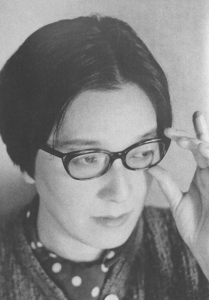
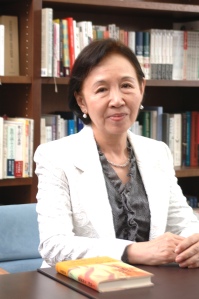
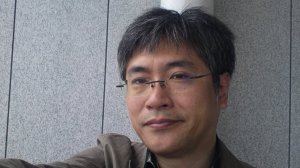
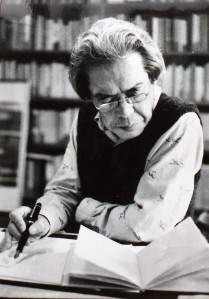
Thank you! This was an interesting and informative read.
LikeLiked by 1 person